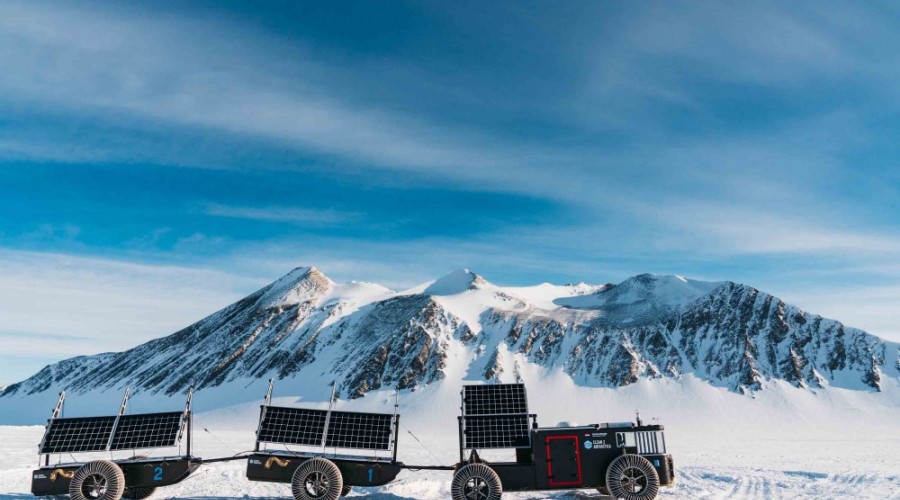Blog from Antarctica: Time

When you start to confuse time, things get strange. Here in Antarctica, on our expedition towards the South Pole, time becomes an interesting thing.
First of all, what time is it here, really? Antarctica isn’t owned by any country, so what time zone do we live in? Our clocks are all on a different time. The solar vehicle is in UTC, some of our laptops are on UTC+1, and our phones are on UTC-4. Looking at one clock, it’s time for dinner, but on the other, it’s not nearly. Normally, we look at the time to guide us through our day, telling us when we eat and when we sleep, but here, you realize you just eat when you’re hungry, and sleep when you’re tired. Especially because the sun won’t really tell you either, as it’s always light. When clocks get mixed up, when night is also day and you don’t know what’s what, you just have to listen to your body.
But still, even here, we need to hold onto time. We need it to communicate with each other, with the rest of the world, with you, and to keep track of our progress. If we don’t reach the South Pole by a certain date, we need to get back in order to be able to leave Antarctica. Everyone, everywhere, lives by time, so we need it to go through life.
Secondly, specific moments in time are experienced differently than normal here. We’ll have a white Christmas, that’s for sure, but it’ll be a different experience. We’re eating out of a bag, not really a festive meal. It puts things in perspective, because it makes you realize that a point in time is just that, a point in time. You don’t need Antarctica to teach you that. But in a surrounding that’s so white, especially in a white-out storm like we’ve been experiencing a lot, you feel like there’s nothing besides your crew and nature, and everything else becomes obsolete. You come to live smaller, and time becomes less of a thing.
And at the same time that time becomes less of an issue, it also gains importance.
Because time has many meanings. Time is a certain direction of the clock, a specific moment in someone’s life, or in history. Time is a memory, and time is the past. But time, as a word, can also be used to signify a need. Time as a reference for a turning point of action. And that’s the kind of time that becomes really important.
It’s time. Time for us to create a society that’s actually sustainable. A society that’s circular, where we’re creating with nature, and not against it. Collaborating with each other, and with our surroundings. Antarctica is showing us once again that nature is stronger than we are, and we’re merely surviving in it. So instead of fighting it, we embrace it. It might not be as comfortable, but there’s also comfort in embracing what’s stronger than we are. It’s time for us to see things differently. It’s time to change our actions 180°.

Steun Zero Waste!
Met jouw hulp kunnen wij mensen en bedrijven inspireren en activeren om plastic niet als afval te zien, maar als waardevolle grondstof.
